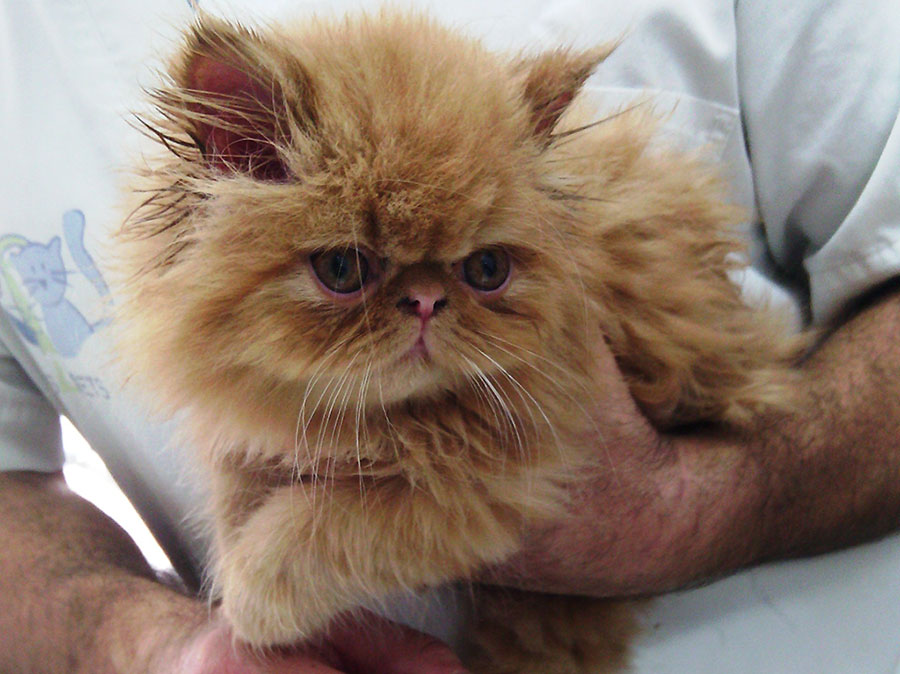Congrats! You have a new kitten
So, you’ve adopted or bought a new kitten. Congratulations!
A kitten is a big responsibility and there are a few important things you need to know.
Vaccinations & preventive treatments:
The difference between a vaccine and a preventive treatment is that in a vaccine we inject the body with antigens (weakened or dead bacteriae and/or viruses) so the body could develop antibodies against them and use them in case it encounters these antigens in “the real world”. In a preventive treatment we use a drug/substance that kills the pathogen.
- Vaccinations – The annual vaccinations of a cat are FVRCP and rabies (which is not obligatory by law, unlike for dogs, but it recommended for outdoors cats).
- FVRCP – kittens are vaccinated at two and three months of age. This protocol is aimed to achieve the maximal immune response and to avoid having the maternal antibodies react to the antigens.
- After the 2 vaccinations (mentioned above) during kittenhood the cat should be vaccinated once a year.
- Rabies – the vaccine is done once at kittenhood and then annually. As mentioned above, it’s recommended for cats that go outside.
- Preventive treatments are those against fleas, ticks and intestinal worms.
- Fleas and ticks – it is recommended to treat against fleas and ticks once a month all year long. Apart from being a nuisance, fleas and ticks may cause allergies and transmit diseases. The treatment can be done with ampoules or collars. Cats are often less infested with ticks but they may still infest them.
- Intestinal worms – it is recommended to treat against intestinal worms in kittens 2-3 times when they are young and then every 6 months. Kittens often get worms in utero and later in life get them from infected fleas. The treatment is usually done with syrup or tablets.
Food:
Kittens have different nutritional requirements than adult cats. Therefore, it is important to feed them high quality kitten food, which is needed for their development, and not adult food and/or table scraps. Commercial kitten food is balanced and suitable for kittens so a kitten up to a year of age that feeds on such a diet does not need any supplementation of vitamins, calcium, etc.
Quantities – up to six months of age you can let your kitten eat as much as s/he wants and it’s recommended to divide it over several meals. Over 6 months of age it’s recommended to feed measured amounts in order to prevent getting overweight. You can also start feeding 2-4 meals a day at this stage. When food is available all the time and not divided into meals there is a higher chance of obesity, therefore this is less recommended. Whatever way you choose to feed your cat, it’s best to measure and feed the correct amount based on age and weight and not leave a full bowl all the time.
Treats – if you want to “spoil” your kitten a little, you can give her/him a commercial treat and food s/he likes but it is important not to overdo it and avoid dangerous treats (dairy, spicy table scraps, bones that could cause blockage, diarrhea and vomiting; seemingly harmless products that are poisonous for dogs and cats such as chocolate, grapes, onion, garlic, broccoli, etc.) We recommend using treats mainly for training (see next).
Training:
Training a cat is not as common as training a dog but it is still doable.
Training the kitten needs to be based on positive reinforcement: when you say “no” to a cat, s/he doesn’t really understand what you want from her/him but if s/he gets a nice treat for doing a desired action then s/he will learn to repeat that action. This way you can encourage your kitten to offer desired actions and eliminate unwanted behavior. This way the kitten will be motivated by joy, challenge and satisfaction rather than fear.
This method of training is suitable for basic training (e.g. not getting on tables) but also for training your cat to cooperate with you for basic “maintenance”, such as: nail trimming and ear cleaning. Kittens usually don’t need these but this age is the perfect time to get them used to being handled. If you invest a bit of time doing this then you’ll make your, your cat and your vet’s lives a lot easier down the road.
Bathing:
It is not recommended to bathe a kitten before 3 months of age. When bathing, it is important to do it with a shampoo made for kittens and avoid getting water in the eyes, ears and nose.
One should wait at least 3 days between bathing and applying an anti-flea ampule.
Spay and neuter:
Spaying and neutering have both health and behavior advantages. Read more about it here.

